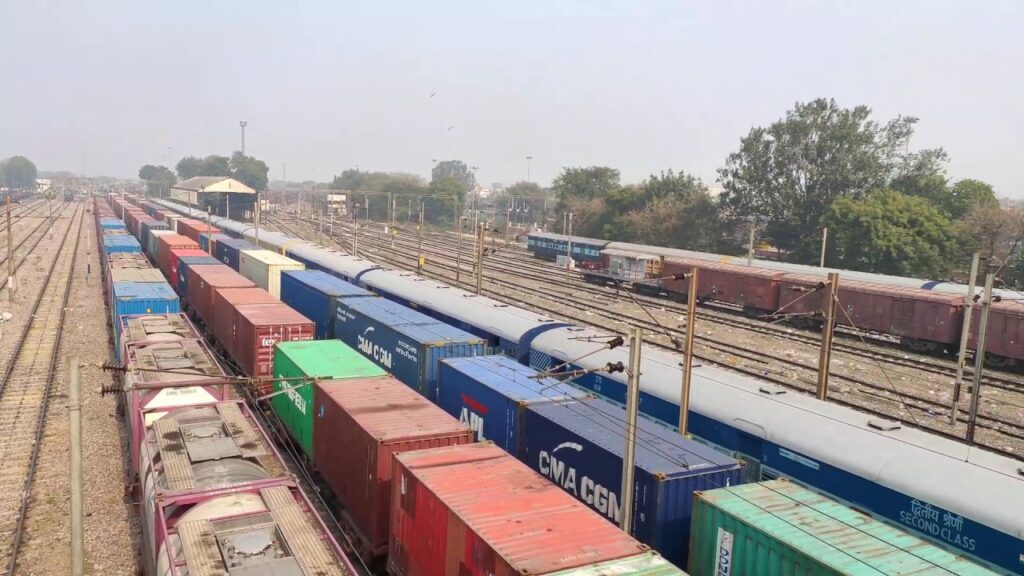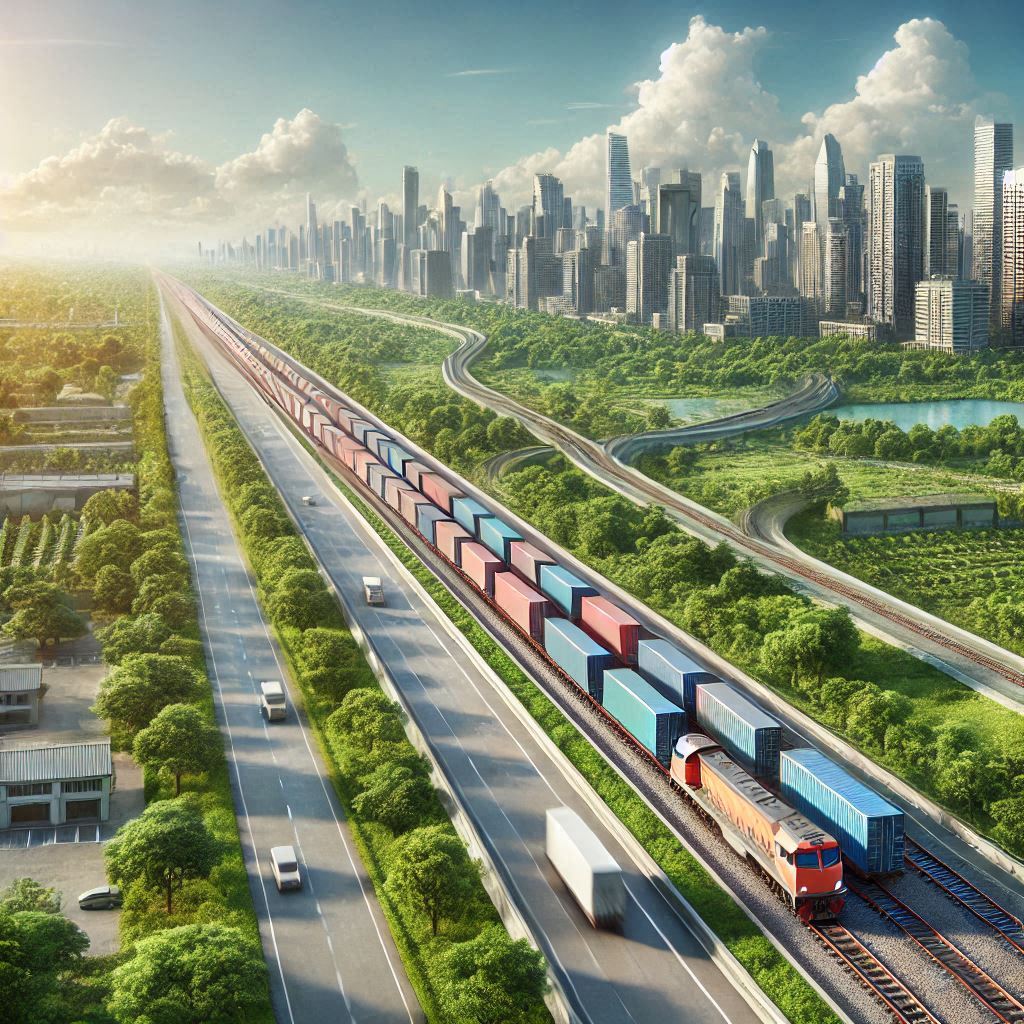Dedicated Freight Corridor (DFC) Project

Overview of the DFC Project
The Dedicated Freight Corridor (DFC) project is one of India’s largest and most ambitious infrastructure initiatives, designed to transform the nation’s freight transportation sector. Spanning over 1,483 kilometers, the DFC will create a dedicated railway network that will revolutionize the movement of goods across India. This strategic project aims to increase the speed, efficiency, and capacity of freight transport, significantly contributing to India’s economic growth. By improving connectivity between industrial hubs, the DFC is set to reduce transportation costs and delivery times, which is expected to bring about a 2-3% reduction in logistics costs, currently one of the highest in the world at around 13-15% of GDP.
Uttar Pradesh
22 km (1.4%)
NCR of Delhi
115 km (7.5%)
Haryana
130 km (8.5%)
Rajasthan
553 km (36%)
Gujarat
565 km (36.8%)
Maharashtra
150 km (9.8%)
Total
1535 Kms(100%)
Highlights of the Dedicated Freight Corridor (DFC)
Length and Layout:
Eastern DFC: Connects Ludhiana to Howrah over 1,100 kilometers, serving northern India’s heavy manufacturing zones.
Western DFC: Connects Delhi to Mumbai over 1,483 kilometers, passing through several key states like Gujarat, Maharashtra, Rajasthan, and Uttar Pradesh.
Capacity: The DFC will handle over 1,100 freight trains daily, carrying millions of tons of goods annually, including containers, coal, cement, and steel.
State of the Art Infrastructure: Dedicated tracks for freight with double-stack containers and high-speed trains capable of traveling at speeds up to 100 km/h, which is a significant improvement over current freight train speeds.
| Complete Stretch of Western DFC | Stretch of Western DFC passing thru Gujarat | |
| DFC Length | 1535 Kms | 565 Km |
| Project Cost | Rs. 30,327 Crs. | Rs. 12,000 Crs. |
Economic, Industrial, and Environmental Impact of the DFC
The Dedicated Freight Corridor (DFC) is set to play a transformative role in India’s economic growth, with projections indicating a contribution of 1.5% to 2% to the national GDP over the next five years. By enhancing logistics efficiency and significantly reducing transportation costs, the DFC will serve as the backbone of India’s modern logistics infrastructure.
Beyond economic impact, the DFC will accelerate the development of Multimodal Logistics Parks (MMLPs), Special Economic Zones (SEZs), and strategic industrial corridors such as the Delhi-Mumbai Industrial Corridor (DMIC)—further strengthening India’s position as a global manufacturing and trade hub.
From an environmental perspective, the DFC supports a shift from road to rail freight, which is both sustainable and efficient. This transition is expected to reduce road congestion, cut carbon emissions by 15–20%, and eliminate nearly 2 million trucks from Indian highways annually—marking a significant step toward greener, safer transportation.

DFC JUNCTIONS IN GUJARAT
- Dholera Nano CityGothangam- KRIBHCO, Steel Plants, Dahej port, Bharuch- Dahej Investment Region, Surat – Navsari Industrial Region etc.
- Makarpura- Vadodara – Bharuch Industrial Area, Bharuch – Dahej Investment region, Dahej port etc.
- Anand- Ahmedabad- Dholera Investment region, Ports of Pipavav , Bhavnagar etc.
- Mehsana- Palanpur- Mehsana Industrial area & Ports in Kutch area like Kandla, Gandhidham, Mundra etc.
- Dholera Nano CityPalanpur- Palanpur- Mehsana Industrial area & Ports in Kutch area like Kandla, Gandhidham, Mundra etc.
Progress Update - DFC Project
Award of Contracts
- A Design and Build Contract has been awarded for the construction of 54 major and significant bridges along the Western Corridor between Vaitarana and Surat, covering an area of approximately 200 kilometers. The contract is valued at ₹600 crore.
Land Acquisition
- A notification for land acquisition has been issued for 309 kilometers of the 565-kilometer stretch in Gujarat. According to the Railway Act, the land acquisition process is required to be completed within a one-year timeframe.

